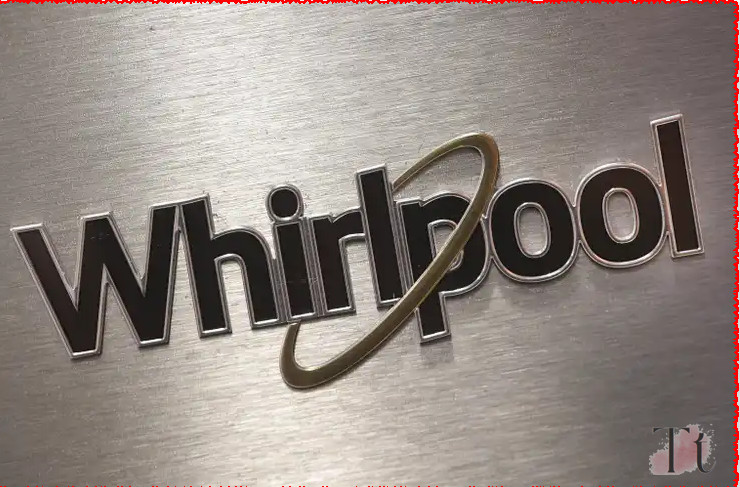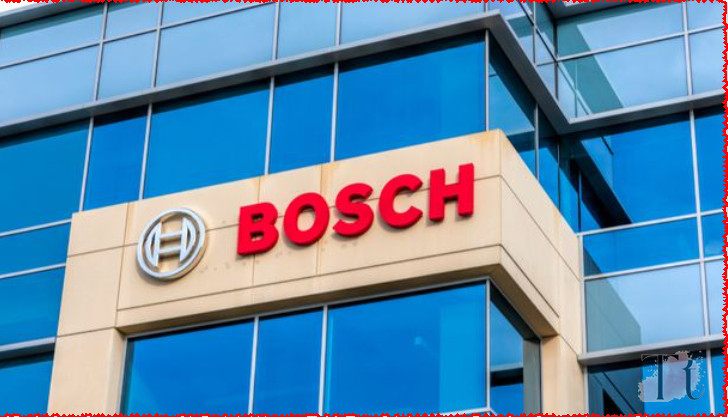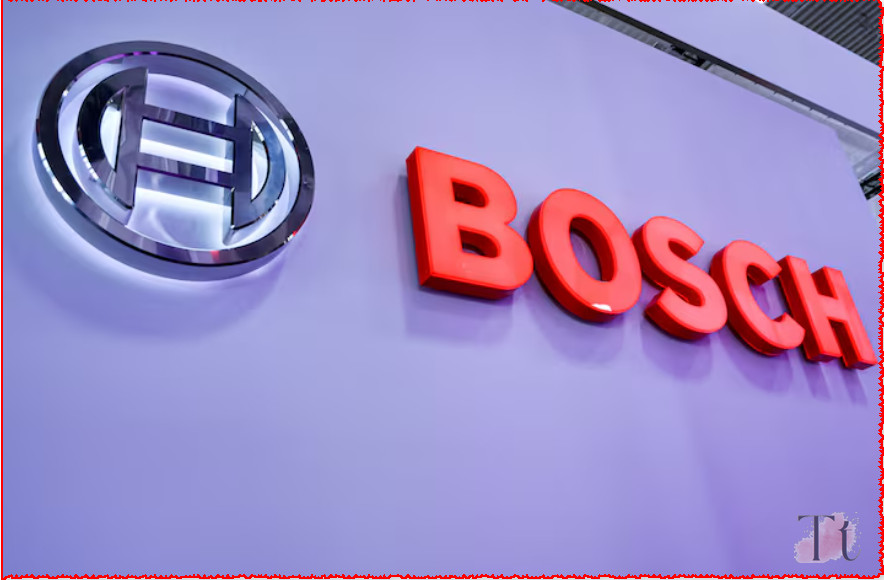Introduction
The industrial landscape is currently abuzz with the news that Robert Bosch GmbH, a global leader in engineering and technology, is contemplating a bid for the prominent U.S. appliance manufacturer Whirlpool Corporation. This potential acquisition, first reported by Reuters, could significantly reshape the competitive dynamics within the household appliances market. The possibility of this merger has already caused substantial movements in the stock market, with Whirlpool’s shares experiencing a notable surge in premarket trading. In this comprehensive analysis, we will delve into the details surrounding this potential acquisition, its strategic implications for both companies, the market’s reaction, and the broader industry context.
Table of Contents

Bosch’s Strategic Intent
Robert Bosch GmbH, commonly known simply as Bosch, is a multinational engineering and technology company headquartered in Germany. It is renowned as the world’s largest automotive supplier, but it also has a significant presence in various other sectors, including industrial technology, consumer goods, and energy and building technology. Bosch’s home appliances division, which includes brands like Bosch, Siemens, and Gaggenau, is a key component of its consumer goods portfolio.
Motivations Behind the Potential Acquisition
- Expansion in the Household Appliances Market:
The primary motivation for Bosch’s interest in acquiring Whirlpool appears to be the desire to strengthen its position in the household appliances market. This market is highly competitive, with significant players from Asia, such as LG and Samsung, challenging the dominance of traditional Western manufacturers. By acquiring Whirlpool, Bosch would gain access to a wider range of products and brands, thereby enhancing its market share and competitive edge. - Diversification of Product Portfolio:
Whirlpool’s extensive portfolio includes well-known brands such as KitchenAid, Maytag, and Amana, which complement Bosch’s existing offerings. This diversification would allow Bosch to cater to a broader customer base and meet varying consumer preferences across different regions. - Global Reach and Synergies:
Whirlpool has a strong presence in North America and a growing footprint in other parts of the world. Integrating Whirlpool’s operations with Bosch’s existing global network could create significant synergies, leading to cost savings, enhanced distribution capabilities, and improved operational efficiencies. - Addressing Market Challenges:
The household appliances market is currently facing numerous challenges, including supply chain disruptions, increasing raw material costs, and evolving consumer demands. By acquiring Whirlpool, Bosch could leverage the combined resources and expertise of both companies to better navigate these challenges and adapt to changing market conditions.
Whirlpool’s Position and Recent Developments
Whirlpool Corporation, headquartered in Benton Harbor, Michigan, is a household name known for its large appliances, including washing machines, refrigerators, and ovens. Over the years, Whirlpool has built a reputation for quality and innovation, making it a trusted brand in many households worldwide.
Recent Restructuring Efforts
In recent years, Whirlpool has undertaken significant restructuring efforts aimed at streamlining its operations and improving profitability. These efforts include:
- Divestitures and Spin-offs:
Whirlpool has divested its Middle Eastern and African businesses and has restructured its European operations by merging them with Turkish competitor Arcelik. These moves are part of a broader strategy to focus on core markets and reduce operational complexity. - Job Cuts and Cost Reduction:
To boost profit margins, Whirlpool recently announced plans to cut around 1,000 jobs. This decision is aimed at reducing overhead costs and increasing operational efficiency. - Product Line Expansion:
While traditionally known for large appliances, Whirlpool has been expanding its product line to include smaller appliances such as espresso machines and kitchen gadgets. This diversification aims to capture a larger share of the growing small appliances market and attract a broader customer base.
Market Reactions and Implications
The news of Bosch’s potential bid for Whirlpool has had immediate and notable effects on the stock market. Whirlpool’s shares surged by 20% in premarket trading following the Reuters report. This sharp increase reflects investor optimism about the potential acquisition and the perceived benefits it could bring to both companies.

Stock Market Movements
- Whirlpool’s Share Price Surge:
The significant rise in Whirlpool’s share price indicates that investors are bullish about the potential acquisition. They likely view the deal as a positive development that could enhance Whirlpool’s financial stability, market reach, and growth prospects. - Electrolux’s Share Price Increase:
Interestingly, shares of Electrolux, another major player in the household appliances market, also rose following the news. This could be due to speculation that the Bosch-Whirlpool deal might lead to further consolidation in the industry, potentially benefiting other manufacturers as well. - Market Speculation:
The market is rife with speculation about whether Bosch will indeed proceed with the bid. While the sources cited by Reuters suggest that Bosch is seriously considering the move, there is no certainty that an offer will be made. This uncertainty adds an element of risk and intrigue to the situation, keeping investors and industry analysts on their toes.
Strategic Implications for Bosch and Whirlpool
If Bosch proceeds with the acquisition, the strategic implications for both companies could be profound.
For Bosch
- Enhanced Market Position:
Acquiring Whirlpool would significantly bolster Bosch’s position in the global household appliances market. The combined entity would have a more extensive product portfolio and greater market reach, making it a formidable competitor against Asian manufacturers. - Synergies and Cost Savings:
The integration of Whirlpool’s operations with Bosch’s could lead to substantial synergies, including cost savings from economies of scale, improved supply chain efficiencies, and enhanced research and development capabilities. - Innovation and Product Development:
The acquisition could accelerate innovation and product development efforts, as the combined expertise and resources of both companies could lead to the creation of new and improved appliances that better meet consumer needs. - Expansion into New Markets:
Whirlpool’s strong presence in North America, combined with Bosch’s global reach, could facilitate expansion into new markets and regions, driving growth and revenue generation.
For Whirlpool
- Financial Stability and Investment:
Being acquired by Bosch could provide Whirlpool with greater financial stability and access to the resources needed for continued investment in innovation, product development, and market expansion. - Operational Efficiency:
The integration with Bosch could lead to operational efficiencies and cost reductions, helping Whirlpool enhance its profitability and competitive position. - Brand Strength and Market Reach:
The combined brand portfolio of Bosch and Whirlpool would be extensive, allowing the companies to cater to a broader range of consumer preferences and capture a larger share of the market. - Adaptation to Market Trends:
The acquisition could help Whirlpool better adapt to evolving market trends, such as the growing demand for smart home appliances and energy-efficient products, by leveraging Bosch’s technological expertise and innovation capabilities.
Broader Industry Context
The potential Bosch-Whirlpool deal should be viewed within the broader context of the household appliances industry, which is characterized by intense competition, rapid technological advancements, and shifting consumer preferences.
Competitive Landscape
- Asian Manufacturers:
Asian companies, particularly LG and Samsung, have been gaining significant market share in the household appliances sector. These manufacturers are known for their innovation, competitive pricing, and extensive product offerings, posing a considerable challenge to Western companies like Bosch and Whirlpool. - Market Consolidation:
The potential acquisition of Whirlpool by Bosch is indicative of a broader trend of consolidation in the industry. Companies are increasingly seeking to strengthen their market positions and achieve economies of scale through mergers and acquisitions. - Technological Advancements:
The industry is witnessing rapid technological advancements, particularly in the areas of smart home technology and energy efficiency. Companies that can effectively integrate these technologies into their products are likely to gain a competitive edge. - Consumer Preferences:
Consumers are becoming more discerning and demanding when it comes to household appliances. They seek products that offer convenience, efficiency, and connectivity. Companies that can meet these expectations through innovative product offerings are better positioned for success.

Conclusion
The potential acquisition of Whirlpool by Bosch represents a significant development in the household appliances industry. For Bosch, the move aligns with its strategic goal of strengthening its position in this competitive market and addressing the challenges posed by Asian rivals. For Whirlpool, being acquired by a financially robust and innovative company like Bosch could provide the stability and resources needed to navigate its ongoing restructuring efforts and drive future growth.
While the outcome of this potential bid remains uncertain, the mere possibility has already had a notable impact on the stock market and industry dynamics. Investors and industry stakeholders will be closely monitoring the situation as it unfolds, anticipating the potential implications for both companies and the broader market.
In an industry characterized by rapid change and intense competition, strategic moves like this one can have far-reaching consequences, shaping the future landscape and determining the success of the companies involved. Whether or not Bosch ultimately decides to make an offer, the news underscores the importance of strategic acquisitions and partnerships in maintaining competitiveness and driving growth in the household appliances sector.


1 thought on “Bosch’s Bold Game-Changing Whirlpool Bid:2024”